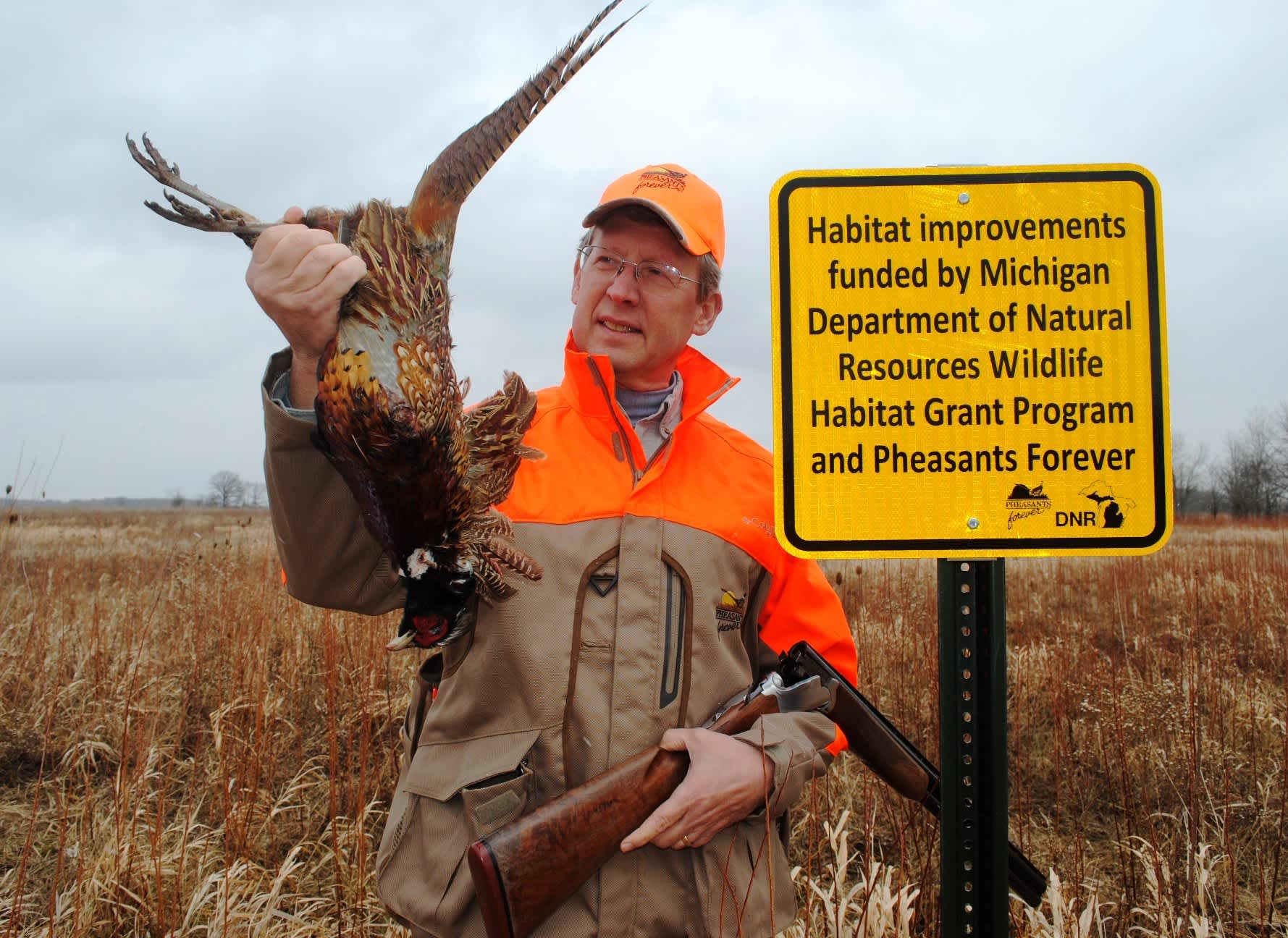Michigan Pheasants Getting Big Upgrade to Help Restore Populations
OutdoorHub Reporters 10.18.16

The Michigan Department of Natural Resources, Pheasants Forever, and Embridge are all partnering to help advance Michigan’s pheasant restoration.
This is great news to upland hunters in Michigan. According to the Michigan DNR news release, improvement projects are scheduled to take place over the next 3 years in various areas in Michigan, focused on Michigan Pheasant Restoration Initiative priority landscapes and oak savanna restoration.
Since the “golden days” of Michigan pheasant hunting in the 1950s, changes in agricultural practices and land use have contributed to pheasant habitat loss, declining food sources and lower production of chicks.
Over the first 5 years of the Michigan Pheasant Recovery Initiative, the DNR has enhanced or restored roughly 7,400 acres of grasslands on state game, wildlife and recreation areas and established 3,160 acres of food plots.

Read all the details in Pheasants Forever’s news release below:
Local Chapters of Pheasants Forever Helping Advance Michigan’s Pheasant Restoration Initiative
Positive hunting forecast, enhanced habitat, new public access areas highlight October 20thpheasant opener
Saginaw, Mich. – Oct. 15, 2015 – In partnership with the Michigan Department of Natural Resources(DNR), local chapters of Pheasants Forever in Michigan have made significant progress to restore pheasant habitat and upland traditions during the first five years of the Michigan Pheasant Restoration Initiative (MPRI).
MPRI aims to create small game hunting opportunities, increase wildlife populations, improve hunter satisfaction, and benefit Michigan’s economy. Landowners can get involved – and receive technical and financial assistance – by forming cooperatives to create and enhance pheasant habitat. A highly anticipated, five-year progress report for MPRI is set to release early this winter, showcasing the various accomplishments of Pheasants Forever and its partners.
“It’s been exciting to see the progress of MPRI over the past five years as Pheasants Forever, the Michigan DNR, and other partners have been working to improve pheasant habitat, pheasant numbers, and pheasant hunting in Michigan,” said Bill Vander Zouwen, regional representative for Pheasants Forever in Michigan and MPRI coalition co-chair. “Michigan has plenty of folks who are passionate about pheasant hunting and wildlife habitat conservation. To that end, I would like to congratulate our local chapters on their successes as part of the restoration initiative; they are helping to restore pheasant hunting traditions one acre at a time.”
Local chapters of Pheasants Forever in Michigan have worked diligently over the years to uphold the organization’s conservation mission. As a result, substantial advancements have been made throughout the state including the completion of 68,279 habitat projects benefiting over 487,000 acres for Michigan wildlife. Since 2014, Pheasants Forever in Michigan has been awarded more than 633,000 dollars in DNR habitat grants; these funds, along with matching contributions from local chapters, are being used to enhance pheasant habitat on publicly accessible lands.
Chapters of Pheasants Forever in Michigan contributing to DNR matching grants include: Monroe County, Lenawee County, Hillsdale County, Branch County, Washtenaw County, Jackson County, Ingham County, Clinton County, Gratiot County, Macomb County, St. Clair County, Lapeer County, Saginaw County, Genesee County, and the Thumb Chapter of Pheasants Forever.
Field reports of crowing roosters and large broods over the summer months suggest Michigan’s pheasant hunting forecast could be better than average. Weather during the nesting and brood rearing period was good, without excessive cold and rain. This mild weather also produced an abundance of insects, which are an important food source for pheasant chicks. Michigan’s pheasant hunting zones and seasons are as follows:
- Zone 1 (U.P.): October 10, 2015 through October 31, 2015
- Zones 2 and 3: October 20, 2015 through November 14, 2015
- Zone 3 (Southern Lower Peninsula): December 1, 2015 through January 1, 2016

